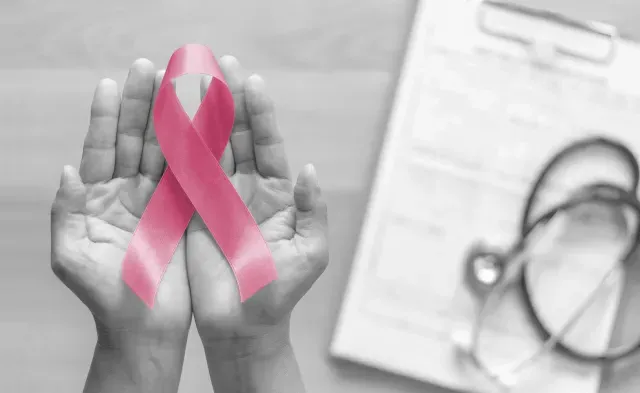Latest
The Evolution of Nursing: From Past to Future
May 21, 2024

It's essential to reflect on the remarkable journey of the nursing profession. From its humble beginnings to the complex and dynamic field it is today, nursing has undergone significant transformations, driven by advancements in healthcare, technology and society.
The Earliest Days of Professional Caregiving
Nursing finds its earliest roots in the ancient civilizations of Egypt, Greece, and Rome. During this time, individuals known as caregivers or healers tended to the sick and injured. In these societies, the concept of caring for others during times of illness or injury was deeply ingrained in the culture. Caregivers often provided comfort, herbal remedies and basic medical assistance to those in need.
By the 19th century, Florence Nightingale emerged as a transformative figure and would shape the direction nursing would take into the modern world. Nightingale's pioneering work during the Crimean War—emphasizing cleanliness, hygiene, and sanitation—revolutionized how healthcare was delivered and set new standards for hospital care. Her commitment to evidence-based practice and patient-centered care set a precedent for the nursing profession, shaping its trajectory for generations.
Following Nightingale's work, nursing education underwent significant developments. More nursing schools were established, providing aspiring nurses with the knowledge and skills needed to deliver high-quality care. The establishment of professional organizations, such as the American Nurses Association (ANA) and the International Council of Nurses (ICN), further solidified nursing as a respected profession.
The 20th Century: A Turning Point for Nursing
The 20th century marked a period of significant transformation with the emergence of formal nursing education programs and the establishment of professional standards; there was a notable increase in the number of trained nurses entering the workforce.
The outbreak of World Wars I and II brought about unprecedented challenges and opportunities for nursing. Nurses played essential roles in military hospitals and field units, providing critical care to wounded soldiers on the front lines. Their courage and dedication under extreme conditions earned them widespread recognition and respect and highlighted the indispensable role of nurses in times of local, national and global crises.
This period also witnessed rapid advancements in medical technology that revolutionized healthcare. Key breakthroughs, such as the discovery of antibiotics and the development of sophisticated medical equipment, had profound implications for nurses. Many were at the forefront of implementing these innovations, administering medications, operating lifesaving devices and adapting their skills to meet the evolving needs of patients.
As healthcare became more complex and specialized, nurses began to take on a wider range of roles and responsibilities. Specialized fields such as pediatrics, oncology and critical care emerged, allowing nurses to focus their expertise on specific patient populations or medical conditions. Advanced practice roles, including nurse practitioners, also gained prominence, expanding access to primary care and specialized services in underserved communities.
Nursing Today: A Dynamic Profession in a Changing Landscape
Today, nurses fulfill an array of roles and specialties across a spectrum of healthcare settings. They range from traditional bedside care to leadership positions, education, research and advocacy. This diversity underscores the adaptability and versatility of nursing as a profession.
Nurses serve as frontline caregivers, educators, researchers and leaders, contributing to every facet of patient care and healthcare delivery. Specialized fields such as gerontology, psychiatric nursing and informatics have emerged, reflecting the evolving needs of patients and the healthcare industry.
Despite the remarkable progress made in nursing, the profession faces challenges in the 21st century. Workforce shortages, exacerbated by an aging population and increased demand for healthcare services, pose significant obstacles to delivering high-quality patient care. The COVID-19 pandemic also added another layer of complexity, placing unprecedented strain on nurses and highlighting the importance of mental health and self-care among healthcare professionals.
In response to these challenges, nurses and healthcare organizations now embrace innovative solutions to enhance patient care, improve outcomes and address workforce needs. Telehealth and digital health technologies have emerged as valuable tools for delivering remote care and expanding access to healthcare services, particularly in rural communities and among underrepresented populations.
The Future of Nursing: Embracing Innovation and Leading Change
It is unlikely that those in ancient times or Florence Nightingale could have predicted how far healthcare and the nursing profession would come today. Advances in healthcare technology, including telemedicine, artificial intelligence, and personalized medicine, could potentially revolutionize patient care and reshape the role of nurses in healthcare delivery. These innovations offer new avenues for nurses to leverage technology to enhance efficiency, improve patient outcomes and deliver care tailored to individual needs.
One thing does remain true: nurse leaders are essential drivers of innovation, quality improvement, and organizational change. They can serve not only as actors on the frontlines of medicine but as loud, trusted voices who advocate for policies that support nursing education, workforce development and patient-centered care.
As we celebrate the evolution of nursing during National Nurses Month, and all year long, it is important to recognize the remarkable achievements and contributions of nurses past and present. From its origins as a noble calling to its role today as an essential profession, the selfless individuals who willingly do this work should always inspire and empower those they work with and the patients and communities they care for.
Learn More About Our Nursing Programs
Bureau of Labor Statistics (BLS), U.S. Department of Labor, Occupational Employment and Wage Statistics 2023 / Occupational Outlook Handbook 2022. BLS estimates do not represent entry-level wages and/or salaries. Multiple factors, including prior experience, age, geography market in which you want to work and degree field, will affect career outcomes and earnings. Herzing neither represents that its graduates will earn the average salaries calculated by BLS for a particular job nor guarantees that graduation from its program will result in a job, promotion, salary increase or other career growth.
Latest
Recent Blog Posts
Subscribe to our Newsletter
Get the latest news you need to know, from study hacks to interview tips to career advancement. Have it delivered right to your inbox biweekly.








